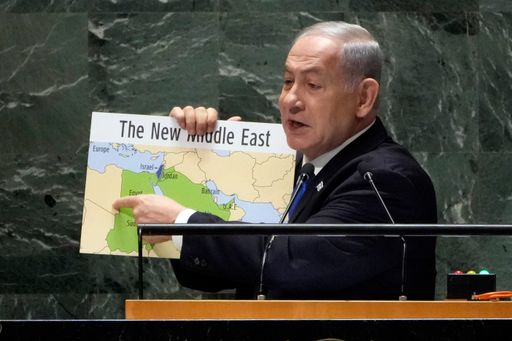Washington, DC — For the past several days, Israel has been conducting strikes in four areas of Syria – Sweida, Daraa, Damascus, and the Damascus countryside – resulting in the deaths and injuries of dozens of Syrians and exacerbating the chaos caused by a localised conflict involving fighters linked to a double-dealing Druze leader and Bedouin tribes.
For its part, the United States demanded that the Syrian government withdraw its military from the flashpoint area, which had been deployed to restore normalcy. It framed the Israeli strikes on Syria, including on the Defence Ministry in Damascus, as "misunderstanding" and vowed to help end Israeli strikes.
Yet, Israel continues to bomb Syrian parts on the pretext of "protecting" the Druze community.
The US, which has committed to stabilising Syria under one government, one flag, and one national army, has found its mission complicated by strikes from ally Israel.
Although Washington has voiced its displeasure regarding the attacks, it has refrained from condemning Tel Aviv.
"Washington is walking a tightrope," former US Ambassador Henry S. Ensher told TRT World, stressing the situation reflects a longstanding dilemma in US policy.
"It wants to protect Israeli security, but it also sees the value in helping Syria's new leadership stabilise the country and prevent further fragmentation or foreign domination."
Ensher described the American position as one of "concern but ambivalence," driven by overlapping interests in counterterrorism, regional influence, and avoiding escalation.
"The United States always wants to protect the interests of Israel and insists it has a right to defend itself," he said.
"But at the same time, there's also a desire to see Syria's new government succeed — to control its territory, prevent terrorism, and limit Iranian or Russian influence."
Israel has repeatedly been striking Syria since the ouster of Bashar al-Assad's regime.
US President Donald Trump has sided with Türkiye and Saudi Arabia in seeking a better relationship with Syria under its new leader, Ahmed al Sharaa.
However, Tel Aviv appears to disapprove of this relationship. In its recent strikes, it targeted Syrian presidential compound, the General Staff Headquarters, and the Defence Ministry in Damascus.
Israeli National Security Minister Itamar Ben Gvir has even called for Israel to "eliminate" Syrian President al Sharaa.
Ensher told TRT World that Israeli attacks on central government targets in Damascus could become a flashpoint.
"Strikes taken in the heart of Damascus would normally be considered an act of war," Ensher said. "I suspect there will be questions asked in Israel by the US about taking those steps."

Israeli claims of Druze 'protection'
Israel has justified its strikes on Syria as a response to alleged threats against the Druze community in southern Syria. Druze leaders have largely accused Israel of using some Druze figures to stir unrest in Syria under the guise of protecting the community.
Ensher also cast doubt on the Israeli explanation.
"It appears the Israelis are playing an imperial role: trying to protect their Druze clans across a border, in another state," he said.
"That's essentially an imperial posture."
He also pointed out that Syrian Druze leaders have consistently opposed foreign involvement in their affairs.
"They do not want Israeli involvement in their conflicts," he said.
"It's a very complicated landscape with a lot of history."
Israeli aggression has come just weeks after a landmark meeting in Riyadh between US President Trump and Syrian President al Sharaa.
Hosted by Saudi Crown Prince Mohammed bin Salman and joined virtually by Turkish President Recep Tayyip Erdogan, the summit was the first of its kind in over two decades.
Following the meeting, Trump pledged to a phased lifting of US sanctions in exchange for what officials called "verifiable commitments" from the Syrian government.
In turn, al Sharaa signalled openness to regional peace and reaffirmed Syria's 1974 disengagement agreement with Israel.
He also invited US companies to invest in Syria's energy sector.

Riyadh summit
The Riyadh summit also marked a shift in Washington's posture toward SDF - the Syrian branch of the PKK/YPG terror group - which had served as a US partner against Daesh.
Trump made clear that the responsibility for managing Daesh prisoners should now fall to Damascus, not a non-state militia.
That demand reflects growing American interest in consolidating state authority in Syria, rather than continuing to empower semi-autonomous forces.
Earlier this year, the SDF signed an eight-point agreement with the Syrian government, paving the way for the integration of its forces and administration into the national structure.
However, Israeli attacks, purportedly in support of a Druze minority, appear to sabotage American efforts.
Ensher told TRT World that US endorsement of Israeli strikes in Syria would depend on their intent and outcome.
"If Israel shows that its strikes are targeting Daesh, the US is likely to approve or even facilitate them," he said.
"But if it's about sectarian dynamics or asserting influence over groups like the Druze — or worse, attacking Damascus — that's another matter."
While the US has not condemned the latest Israeli strikes, it has issued cautious calls for "de-escalation" and "protection of religious minorities" — language seen by analysts as tacit alignment with Israel's framing, without full endorsement.
"Washington is trying to manage both sides," Ensher added.
"They want to remain Israel's strategic partner but also help Syria stabilise. Too much pressure on Damascus could backfire."















